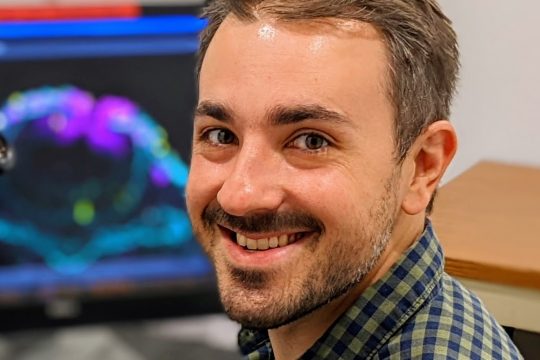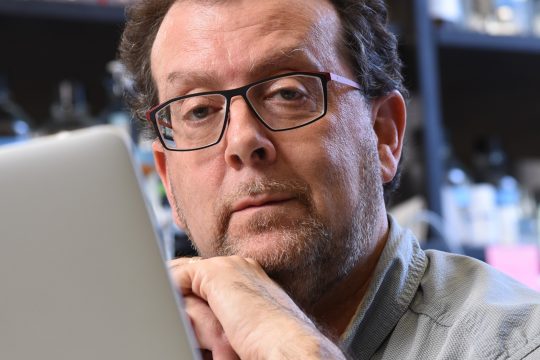Epithelial-to-mesenchymal transition (EMT) is a cellular lifestyle change that produces highly invasive cells that can migrate long distances in the body. These processes are critical for normal embryonic development but are often reactivated in disease states such as cancer...
Redox regulation plays a central role in signal transduction processes operating in the brain. Aberrant redox signaling is a hallmark of several neurodegenerative diseases such as Alzheimer’s disease, Huntington’s disease, Parkinson’s disease, Amyotrophic Lateral Sclerosis and various Ataxias. It...
The growing crisis in antibiotic resistance necessitates a complete molecular understanding of the mechanisms and regulation of bacterial growth and replication to inform development of new drugs. Our laboratory aims to elucidate the mechanisms bacteria use to grow and...
Mechanisms of gradient sensing and chemotaxis are conserved in mammalian leukocytes and Dictyostelium amoebae. Both cells use G protein linked signaling pathways. PH domains specific for PtdIns(3,4)P2 and PtdIns(3,4,5)P3 bind to the membrane at the leading edge of the...
Research Focus Our research focuses on “synthetic cell biology” to dissect and reconstitute intricate signaling networks. In particular, we investigate positive-feedback mechanisms underlying the initiation of neutrophil chemotaxis (known as a symmetry breaking process), as well as spatio-temporally dynamic...
Our research is focused on understanding how neuronal connectivity is established during development. Our work investigates the function of extrinsic guidance cues and their receptors on axonal guidance, dendritic morphology, and synapse formation and function. For several years we...
My laboratory focuses on developing novel single-molecule imaging tools in live cells to probe various dynamic aspects of cellular processes. We develop single-molecule gene expression reporting systems and chromosomal DNA conformation markers to probe the dynamics of gene regulation...
Multi-cellular living organisms grow from single cells into multicellular, complex systems composed of highly diverse cell-types organized into tissues, which in turn form organs and organ systems. To organize and maintain this complex architecture, the organism must undergo constant...
My lab studies the cellular and molecular basis of synaptic transmission and plasticity. Neuronal signaling events at synapses determine circuit responses and result in specific behavioral outputs. This signaling is dynamic – modulated by synapse activity history and perceived...
Synapses are specialized cell-cell junctions which connect individual neurons together and are the sites of transmission of information between neurons. While the molecular mechanisms which promote synapse formation have been a subject of intense investigation, little is known about the...










